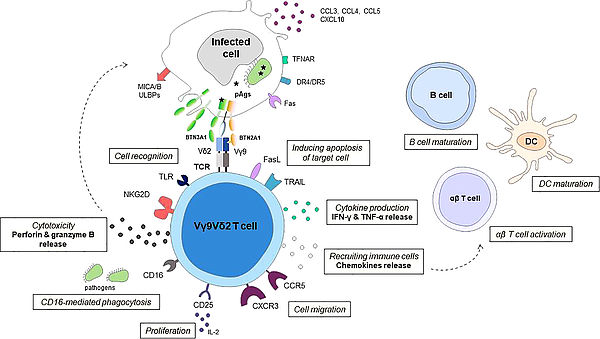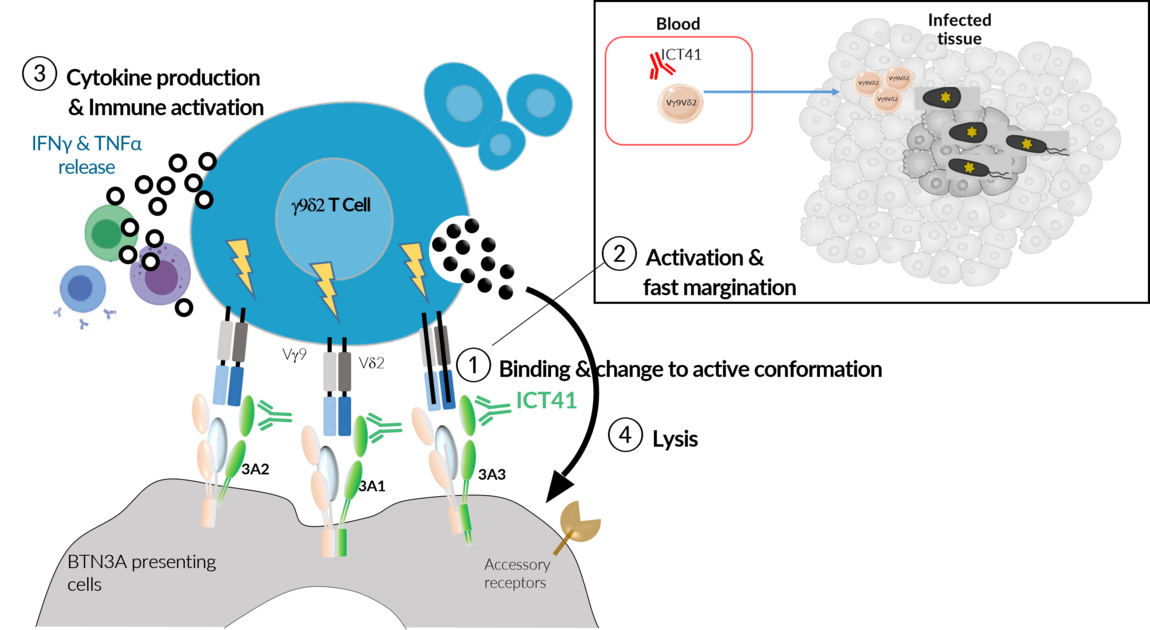
ICT41 is a humanized, anti-BTN3A monoclonal antibody that selectively activates γ9Vδ2 T cells, which normally provide immunosurveillance of pathogens and are part of the immune first responders that are critical for the fight against infectious diseases. Once activated, these cells can orchestrate a broad immune response through multiple pathways comprising granulocytes, CD8 T cells, and NK cells capable of combatting viral, bacterial/mycobacterial, and parasitic infections.
Illustration from Gay L et al, 2022. Role of Vγ9vδ2 T lymphocytes in infectious diseases, Front. Immunol
Mechanism of action
ICT41 binds to BTN3A isoforms inducing a change in an activating conformation (stress mimicking mechanism)

- ICT41 binds with high affinity to all 3 BTN3A isoforms, leading to a change of conformation of the extracellular domain of each isoform into an active conformation that can engage with the γ9Vδ2 TCR.
- This leads to γ9Vδ2 T cell phenotypic activation and fast margination of activated cells from the blood to the infected tissues.
- Phenotypic activation is accompanied by pro-inflammatory cytokine release (IFNγ, TNFα) that will activate other immune cells, including NKs, CD8 T cells, Dendritic Cells and B cells.
- Infected cells will be killed directly by ICT41-activated γ9Vδ2 T cells through release of perforin/granzymes/granulysins, induction of target cell death through death receptors, and ADCC mediated via CD16 expression on γ9Vδ2 T cells.
